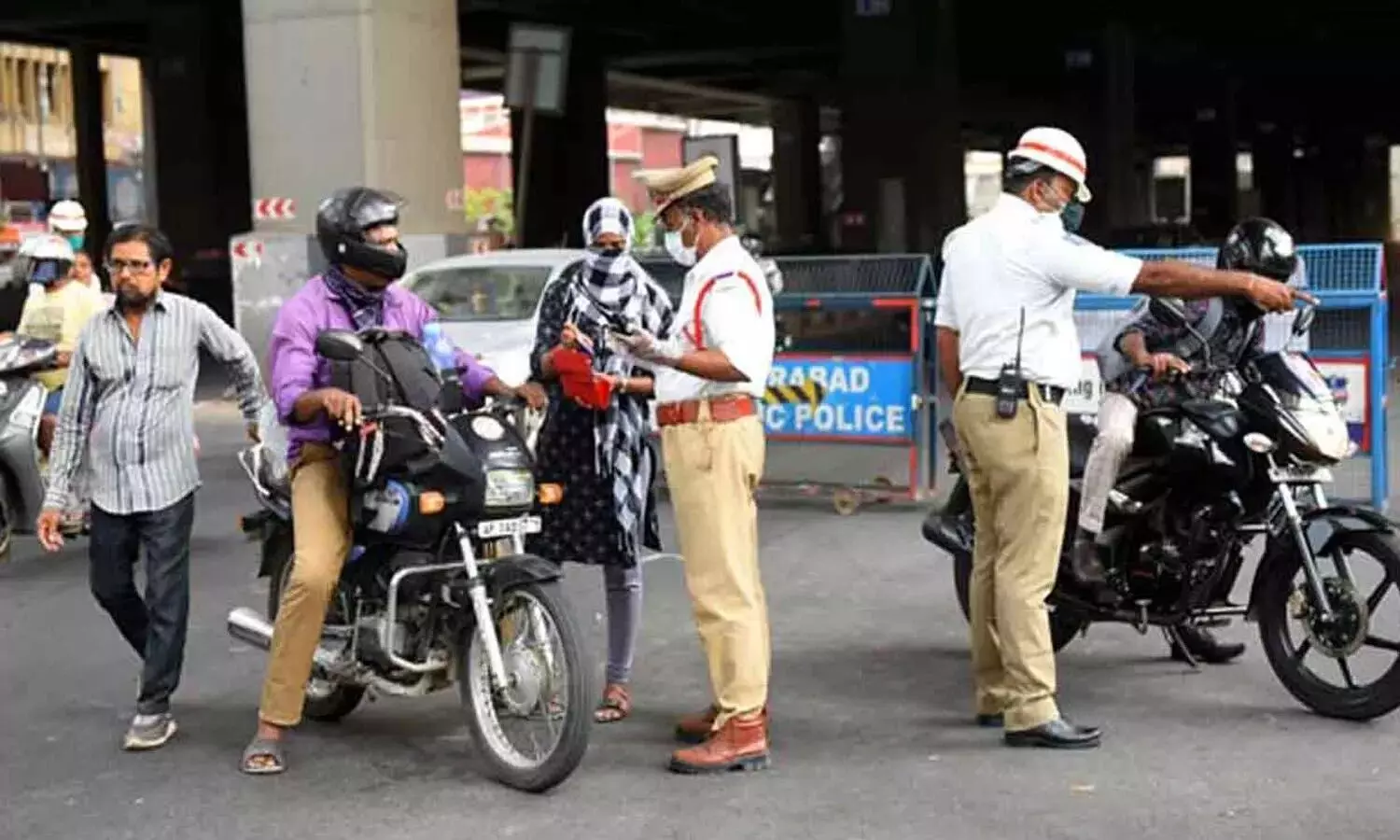‘Discounts dilute fear of law’: Telangana HC slams concession system on traffic challans
The court also ordered an immediate upgrade of the Integrated E-Challan System
By - Sistla Dakshina Murthy |
File Photo
Hyderabad: Slamming the discount system on traffic challans, the Telangana High Court has directed the state government to ensure that all challans must clearly mention the specific legal provisions under which penalties are imposed.
The court also ordered an immediate upgrade of the Integrated E-Challan System to enable citizens to verify the applicable law, rules, and fine amounts online.
Justice N.V. Shravan Kumar, citing Rule 167 and Rule 167-A of the Central Motor Vehicles Rules, said the failure to disclose statutory provisions in challans violates established legal procedure and undermines public confidence in enforcement.
‘Discounts dilute fear of law’: Court
Coming down strongly on the practice of offering discounts on traffic challans, the High Court observed that such policies weaken the deterrent effect of punishment and promote repeat offences and traffic indiscipline. The judge remarked that the issue required deeper legal examination, as public safety cannot be compromised for revenue-driven relaxations.
Tarnaka resident challenges ₹1,235 penalty
The observations came while hearing a petition filed by V. Raghavendra Chary of Tarnaka, who challenged a Rs 1,235 traffic challan, comprising Rs 1,200 as fine and Rs 35 as user charges, issued for triple riding on a two-wheeler.
The petitioner alleged that the challan was legally invalid, as it failed to disclose the provision of law under which the penalty was imposed.
Triple riding punishable with lower fine: Petitioner
The petitioner contended that triple riding is punishable only under Section 128 read with Section 177 of the Motor Vehicles Act, 1988, which prescribes a penalty ranging between Rs 100 and Rs 300.
He further argued that the 2019 amendments enhancing penalties were not adopted by the Telangana government, and therefore could not be enforced in the State.
He relied on Rules 167 and 167-A of the Central Motor Vehicles Rules, 1989, which make it mandatory for authorities to mention the violated legal provision on every challan.
State treats offence as Dangerous Driving
Opposing the plea, the government counsel maintained that the violation was booked under Section 184 of the Motor Vehicles Act (dangerous driving), which prescribes a fine of Rs 1,000.
He submitted that offences under the Act are compoundable under Section 200, and asserted that the State was empowered to fix penalties through official notifications.
Referring to GO Ms No. 54 (2006) and GO Ms No. 108 (2011) issued in the interest of road safety, the counsel admitted that the present e-challan portal does not reflect the legal provisions, but informed the court that technical upgrades were underway.
Court finds Violation of Rules, Excess Collection
The High Court noted that the challan in the instant case was issued in violation of Rule 167-A, as it did not specify the statutory provision invoked. The court also observed that even if Section 184 was applied, the prescribed fine is Rs 1,000 and not Rs 1,200, raising serious concerns over the excess amount collected from the petitioner.
Police directed to file Counter Affidavits
Finding that the matter involved wider issues of digital transparency and legality of penalties, the court directed the Telangana Police and Hyderabad Traffic Police to file detailed counter-affidavits explaining the basis of fine fixation and the functioning of the e-challan system. The petitioner was also asked to verify whether the upgraded portal reflects the statutory details.
Next hearing on December 9
The case has been posted for further hearing on December 9, with the High Court indicating that it would closely examine the validity of enhanced fines, the discount mechanism, and compliance with statutory rules in traffic enforcement.